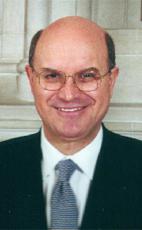Madam Speaker, it is a great pleasure to take part in the debate on the throne speech.
This is one of many throne speeches in my long career. The first one for which I was present was after the general election of 1974. In those 30 years a lot has happened, for the better I might add. When we ran in the 1974 election, the then prime minister, Mr. Trudeau, campaigned on capital assistance to cities, specifically urban transit, regional transit and help with all the infrastructure in our great cities. In Toronto, where I am from, that was particularly well received. However, the moment we got into office, the financial realities being what they were, we had to renege on all of those commitments.
For 30 years the federal government has taken a back seat to helping municipalities across the country. One thing I am most proud of in the last number of years is being able to work from the inside of government to try to change attitudes in Ottawa, attitudes, not just in the cabinet, but in the bureaucracy. There is an attitude in this town that says that somehow the municipalities out there, the great cities and their infrastructure problems, are not really the responsibility of the federal government. Time and time again at cabinet committee meetings I heard the argument “We do not want to own the problem”. That is an unacceptable phrase to use at any time.
I can remember that when we talked about helping the homeless some years ago there was incredible resistance within the bureaucracy, within government and within the prime minister's office to somehow deal with the problem. We had meetings and we found that each department was operating in a silo, that there was no one department that could look across government and really zero in on how we could help deal with one of the tragedies of our time.
No one in the House can be proud that in the year 2004, when we have a very prosperous economy, a well educated economy, we can leave Parliament Hill or go to Toronto, Halifax, Vancouver or smaller communities across the country and trip over people sleeping in the streets. That is not the mark of a great society and that is one of our great failures. When I say ours, I mean collectively, because the responsibility is not just in Ottawa, it is also at the municipal and provincial levels.
Our municipalities cannot deal with problems like the homeless unless they have funding. We fought in cabinet, in caucus, the Toronto caucus in particular, to get funding for the homeless. It has helped to some degree, but what has happened in the last year or so in our cities, particularly in Toronto, is we see an increase in the homeless despite the fact that we have put more money toward the entire problem.
My colleague from Peterborough just reminded me that I am splitting my time with him. I would not want to do Peterborough out. It is a smaller municipality and is a very important municipality which also needs the help which was signalled in the throne speech.
We made a start with the homeless, but it is not nearly good enough. There is something radically wrong with this society in this part of our history when we have such wealth and when we reduced income taxes by $100 billion over five years, yet we have potholes in the streets of Ottawa and Toronto. We have buses that do not operate in Toronto. We have subways and streetcars breaking down. We have people sleeping in the streets. We have waiting lists of people trying to get into our hospitals. If we bundle people up in an ambulance and try to get them to the hospital in Toronto, they will be turned away from hospital after hospital and they end up kilometres away from where they live. That is not the mark of a mature or prosperous society. We have our priorities wrong.
We could argue that perhaps we cut too hard and too fast in the mid-1990s. I do not want to get into that debate. We had that debate in cabinet. The fact is we are in a surplus position and we have to use our money wisely. We have to deal with some of these issues which are very salient, particularly to the large municipalities, but also right across the country in terms of hospital waiting lists, in terms of the homeless and in terms of the municipal infrastructure.
I was really happy to see the Prime Minister campaigning, when he was minister of finance, off and on. He rapped me on the knuckles a few times when I talked about the gas tax as minister of transport, but then he adopted that and I was very pleased. I went one further at the same meeting and said “Why stop there? Why not do something about the GST?”
Guess what? In the throne speech the Prime Minister actually has delivered. The government will work with the provinces to share with municipalities a portion of the gas tax revenues and determine other fiscal mechanisms to achieve these goals. Also, as of February 1, we will turn over the GST that the municipalities pay. That is a really good down payment. When we combine that with the infrastructure money we have made available in previous budgets, that is a good start, but it is not good enough. It should not get us off the hook.

